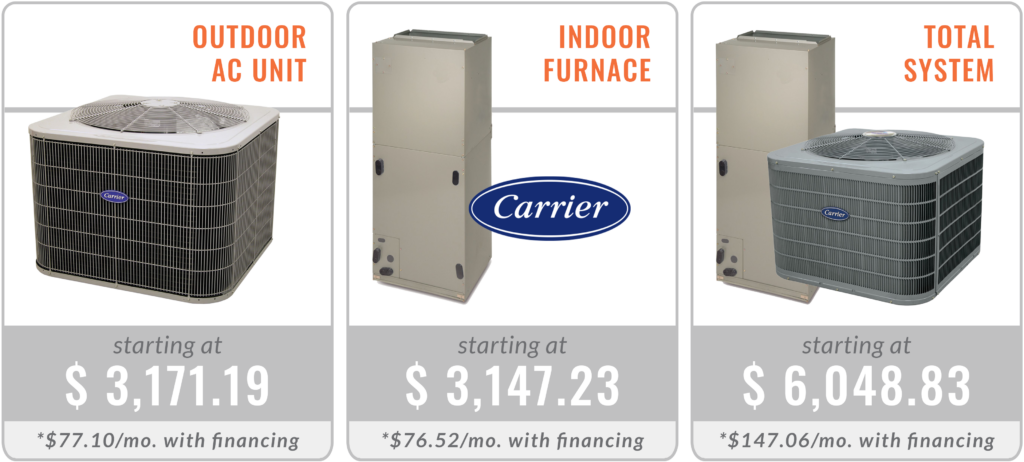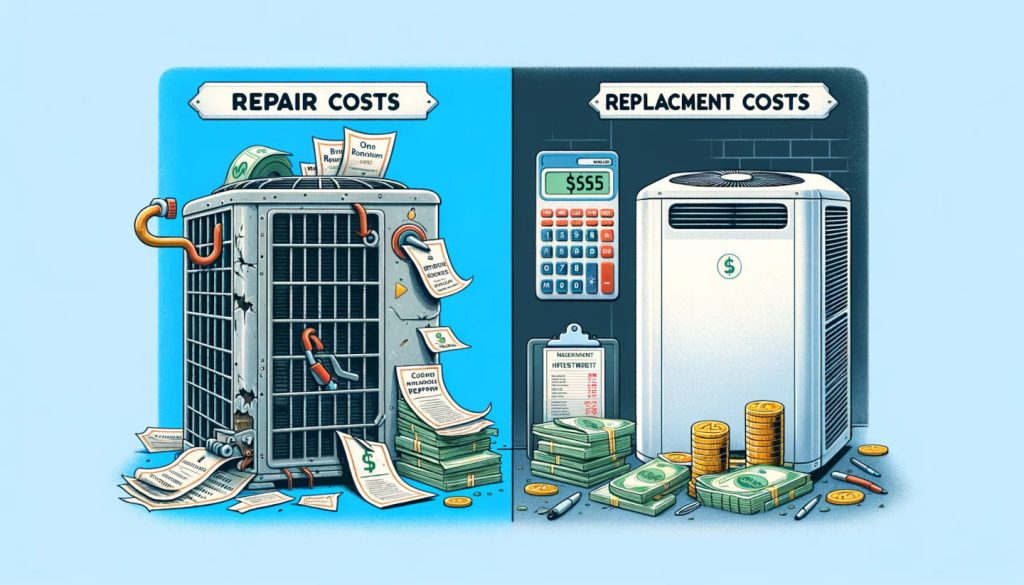Exploring HVAC System Upgrade Costs
As HVAC system upgrade costs become a focal point of discussion, this introductory passage invites readers with a wealth of knowledge, ensuring an informative and engaging read.
The following paragraph will delve into the details of the topic, providing valuable insights and analysis.
Factors impacting HVAC system upgrade costs

When planning for an HVAC system upgrade, it is essential to consider various factors that can significantly impact the overall costs. Understanding these factors can help in making informed decisions and budgeting effectively.
Type of HVAC System
The type of HVAC system being installed or upgraded plays a crucial role in determining the overall cost. For example, upgrading to a more energy-efficient system like a variable refrigerant flow (VRF) system will generally be more expensive upfront but can result in long-term cost savings due to increased energy efficiency.
Size of the System
The size of the HVAC system needed for a particular space is another factor that can influence costs. Installing a system that is too large or too small for the space can lead to inefficiencies and increased operating costs.
Location and Accessibility
The location of the HVAC system and its accessibility can impact installation costs. For instance, if the system needs to be installed in a hard-to-reach area or if extensive ductwork is required, the installation costs can increase significantly.
Quality of Installation
The quality of installation is crucial for the optimal performance and longevity of the HVAC system. Cutting corners on installation to save costs upfront can result in higher maintenance and repair costs in the long run.
Additional Features and Upgrades
Adding extra features or upgrades to the HVAC system, such as zoning systems, smart thermostats, or air purification systems, can increase the overall cost of the upgrade. However, these additional features can enhance comfort levels and energy efficiency.
Types of HVAC System Upgrades

When it comes to upgrading HVAC systems, there are various options available to improve efficiency, replace components, or expand the system. Each type of upgrade comes with its own benefits and costs, which can impact the overall performance of the system.
Efficiency Improvements
Efficiency improvements focus on enhancing the overall performance of the HVAC system while reducing energy consumption. This can include upgrading to a higher SEER-rated air conditioner, installing a programmable thermostat, or adding zoning systems to control temperatures in different areas of the building.
By improving efficiency, HVAC systems can operate more effectively and reduce utility costs in the long run.
Component Replacements
Component replacements involve upgrading specific parts of the HVAC system that may be outdated or malfunctioning. This can include replacing the compressor, condenser coil, or blower motor to ensure the system functions efficiently. Upgrading components can improve the overall reliability of the system and extend its lifespan, reducing the need for frequent repairs.
System Expansions
System expansions involve adding new components or equipment to the existing HVAC system to increase its capacity or capabilities. This can include installing additional ductwork, adding a second zone for heating and cooling, or integrating renewable energy sources like solar panels.
By expanding the system, buildings can accommodate changing heating and cooling needs while improving overall comfort and efficiency.Overall, the costs associated with different types of HVAC system upgrades can vary based on the scope of work and the specific components being replaced or added.
While upfront costs may be higher for certain upgrades, the long-term benefits in terms of energy savings, improved performance, and increased comfort can outweigh the initial investment.
Cost-effective strategies for HVAC system upgrades
When it comes to upgrading your HVAC system, there are several cost-effective strategies you can implement to optimize your budget and get the best return on investment. By making smart choices and considering long-term savings, you can improve the efficiency and performance of your HVAC system without breaking the bank.
Regular Maintenance and Cleaning
One of the most cost-effective strategies for HVAC system upgrades is to prioritize regular maintenance and cleaning. By scheduling annual maintenance checks and keeping your system clean, you can prevent costly breakdowns and extend the lifespan of your equipment. This simple step can help improve efficiency and reduce energy consumption, ultimately saving you money in the long run.
Upgrade to Energy-Efficient Equipment
Investing in energy-efficient HVAC equipment may require an upfront cost, but it can lead to significant savings over time. Energy-efficient systems consume less energy, resulting in lower utility bills and reduced operating costs. Look for systems with high SEER ratings for air conditioners and AFUE ratings for furnaces to ensure maximum efficiency and savings.
Smart Thermostat Installation
Installing a smart thermostat is another cost-effective upgrade that can help you save money on your heating and cooling expenses. Smart thermostats allow you to program temperature settings based on your schedule and preferences, ensuring that your HVAC system runs only when needed.
This can lead to decreased energy consumption and lower utility bills without sacrificing comfort.
Sealing and Insulation Improvements
Addressing air leaks and improving insulation in your home can significantly impact the efficiency of your HVAC system. By sealing gaps around windows and doors, adding insulation in attics and crawl spaces, and ensuring proper ductwork, you can reduce energy waste and improve overall comfort.
These relatively low-cost upgrades can result in substantial savings on your energy bills.
Hiring professionals for HVAC system upgrades
When it comes to HVAC system upgrades, hiring qualified professionals is essential to ensure the job is done correctly and efficiently. Professionals have the expertise and experience to navigate the complexities of HVAC systems, leading to a successful upgrade that meets your needs.
Importance of hiring qualified professionals
One of the main reasons to hire professionals for HVAC system upgrades is their knowledge of different systems and components. They can accurately assess your current system, recommend the best upgrades, and ensure the installation is done correctly. This can prevent costly mistakes and ensure optimal performance of your HVAC system.
Cost comparison: DIY vs. hiring professional HVAC technicians
- DIY upgrades may seem cost-effective initially, but they can lead to more expenses in the long run if mistakes are made. Hiring professionals may have a higher upfront cost, but their expertise can save you money by avoiding errors and ensuring the longevity of your system.
- Professional HVAC technicians also have access to quality materials and tools, which may be more expensive or difficult to obtain for a DIY project. This can impact the overall cost and quality of the upgrade.
Tips for selecting the right HVAC contractor
- Check for licenses and certifications to ensure the contractor meets industry standards and regulations.
- Ask for references or read reviews to gauge the contractor's reputation and reliability.
- Get multiple quotes and compare them to find a contractor that offers a fair price for the services needed.
- Communicate your needs and expectations clearly to the contractor to ensure they understand the scope of the project.
Last Word
In conclusion, this discussion on HVAC system upgrade costs offers a comprehensive summary, leaving readers with a deeper understanding of the subject matter.